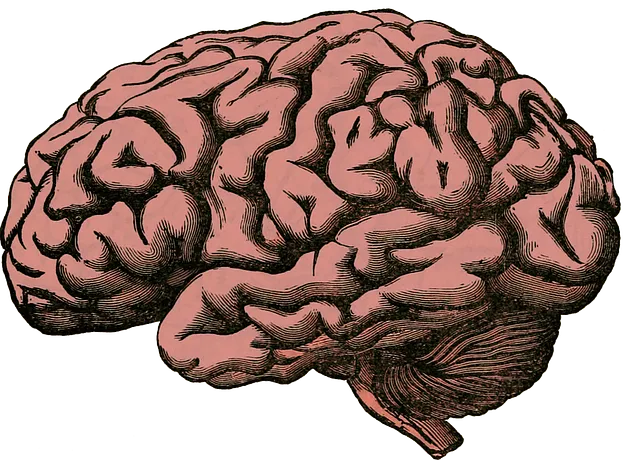The Kaiser Permanente mental health facility in Littleton prioritizes patient care through self-assessment tools that promote individual responsibility for mental wellness, enhance cultural competency among healthcare providers, and enable early detection of mental health issues. An ideal tool should ask wide-ranging questions sensitive to diverse challenges, incorporate validated psychological assessments, and track daily emotional states using digital platforms, allowing continuous improvement based on patient feedback. This comprehensive strategy ensures holistic well-being tailored to each patient at the facility.
Mental wellness self-assessment tools play a pivotal role in empowering individuals to take charge of their well-being, especially within healthcare settings like the Kaiser Permanente Mental Health Facility in Littleton. This article delves into the development of such tools, highlighting their importance and exploring key components for effectiveness. We discuss strategies for implementation at KP Littleton, focusing on continuous improvement to enhance patient care and outcomes. By understanding the need and leveraging best practices, these assessments can revolutionize mental health management.
- Understanding the Need for Self-Assessment Tools at Kaiser Permanente Mental Health Facility Littleton
- Key Components of an Effective Mental Wellness Self-Assessment Tool
- Implementation and Continuous Improvement Strategies for Self-Assessment at KP Littleton
Understanding the Need for Self-Assessment Tools at Kaiser Permanente Mental Health Facility Littleton

At Kaiser Permanente Mental Health Facility Littleton, recognizing the value of self-assessment tools is paramount in delivering comprehensive care to patients. In today’s healthcare landscape, where patient engagement and empowerment are gaining prominence, these tools offer a unique opportunity for individuals to actively participate in their mental wellness journey. By providing patients with the means to assess their emotional well-being, the facility fosters a sense of self-awareness and ownership over their mental health.
The integration of self-assessment tools caters to diverse patient needs, particularly in addressing cultural competency within the healthcare provider. Encouraging patients to reflect on their emotions and experiences allows for deeper understanding, enabling healthcare professionals to tailor their approach. Moreover, focusing on emotional intelligence and self-esteem improvement, these assessments can be instrumental in early detection of mental health issues, thereby facilitating timely interventions and enhancing overall treatment outcomes.
Key Components of an Effective Mental Wellness Self-Assessment Tool

An effective mental wellness self-assessment tool should incorporate several key components to accurately gauge and improve an individual’s psychological well-being. Firstly, it must include a comprehensive set of questions or statements that cover various aspects of mental health, such as mood, anxiety levels, stress management, emotional resilience, and coping mechanisms. These questions should be designed to prompt honest self-reflection and be sensitive to the diverse experiences and needs of users, particularly those who may face unique challenges in healthcare settings, like those visiting the Kaiser Permanente mental health facility in Littleton.
Furthermore, incorporating validated psychological assessments or scales can enhance the tool’s reliability and validity. This could include measures for burnout prevention strategies among healthcare providers, emotional intelligence, and self-esteem improvement. By integrating these elements, the self-assessment becomes a valuable resource for individuals seeking to improve their mental wellness and for professionals aiming to support their patients’ holistic well-being.
Implementation and Continuous Improvement Strategies for Self-Assessment at KP Littleton

At Kaiser Permanente’s mental health facility in Littleton, implementing a robust self-assessment strategy is key to enhancing patient care and outcomes. To achieve this, KP Littleton leverages digital platforms that enable patients to regularly track their mental wellness. These tools are designed to prompt users about their daily experiences, including emotional states, stress levels, and the effectiveness of coping mechanisms, facilitating a holistic understanding of their mental health.
Continuous improvement is embedded in this process through patient feedback loops. By encouraging patients to provide input on the self-assessment tools, KP Littleton can identify areas for enhancement, whether it’s refining question wording for better clarity or adding features that support specific emotional regulation needs, such as stress management techniques and self-care routine development. This iterative approach ensures that the self-assessment remains relevant and beneficial for all patients.
The development of mental wellness self-assessment tools is a vital step forward for the Kaiser Permanente mental health facility in Littleton. By implementing these tools, the facility can empower individuals to actively engage in their mental well-being and provide them with valuable insights into their psychological state. As highlighted in this article, an effective self-assessment should be comprehensive, user-friendly, and tailored to individual needs. With continuous improvement strategies in place, the KP Littleton facility can ensure these tools remain relevant and beneficial, fostering a culture of mental wellness awareness and support among its community.






